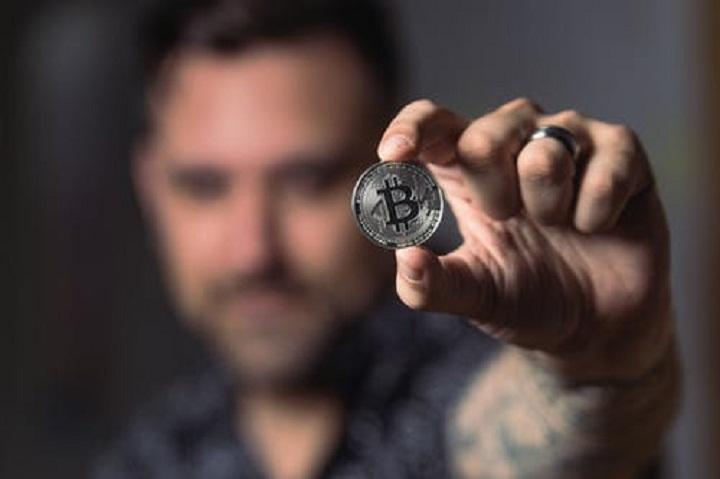
Written by Rakuten Blockchain Lab's Fergal Downey
It has been over 10 years since the launch of the first and most widely known blockchain network. Much has been written since then about Bitcoin and the other cryptocurrencies which were launched in the interim, from crypto billionaires to major hacks of cryptocurrency exchanges. Sensational news coverage from mainstream media outlets contributes to the opinion that many people hold about cryptocurrencies and blockchain, but a closer look at the ecosystem reveals a very different and much more positive story.
Much work has been done over the last few years to legitimise cryptocurrencies, although it still varies from country to country. In 2019 Japan marked a hugely important step by introducing legislation that gave Bitcoin legal tender and officially authorised it as a regular payment method. The country has now 21 FSA-approved crypto exchange operators, including Rakuten Wallet, part of which was developed at the Belfast-based Rakuten Blockchain Lab. In November a panel of senior British judges and lawyers moved to clarify the status of cryptocurrencies in law, recognising crypto assets as "tradable property". Other countries that have introduced cryptocurrency regulations include Switzerland, Lithuania, Malta and Mexico with many more governments set to propose or implement regulations in 2020.
The story of the innovative technology that underpins these cryptocurrencies known as blockchain is equally progressive. In April 2019, the European Commission in Brussels formed the International Association of Trusted Blockchain Applications (INATBA), bringing together suppliers and users of Distributed Ledger Technologies, with representatives of governmental organisations and standard setting bodies from all over the world. The same British legal task force that clarified the cryptocurrency status further outlined the potential importance of smart contracts stating that they are already enforceable by the courts under existing English law. Whilst China still has a ban on cryptocurrency trading, the country’s Congress passed a Cryptography Law in October, with their President, Xi Jinping saying that the country should accelerate the development of blockchain technology as a core for innovation.
RELATED: Busting blockchain myths at Rakuten Blockchain Lab
Whilst, blockchain has the potential to become one of the most disruptive technologies in recent times, critical to the future and mainstream adoption is the identification of use cases that take advantage of the key benefits of blockchain, or even better, could not be done without using blockchain. Thankfully, much of the industry has moved away from the misleading narrative that blockchain is the solution for everything and is now focused on creating products that address specific problems or opportunities.

RELATED: An Engaging Contract - Marriage Proposal Recorded on the Ethereum Blockchain
Many of these products are still in the financial services domain. So much so, that this range of applications has been assigned the moniker Decentralised Finance (or DeFi), which is essentially conventional financial tools built on a blockchain. Whilst some of the early DeFi applications target niche sections of society such as trading and arbitrage platforms for daytraders and hedge funds, there has been a significant increase in those applications aimed at the general public from loans and property investment to payments and remittance.
One of the biggest blockchain news stories of the year was the launch by Facebook of the Libra, with a mission to enable a simple global currency and financial infrastructure empowering billions of people. Libra is to be built on a secure, scalable, and reliable blockchain, be backed by a reserve of assets and governed by the independent Libra Association.
RELATED: Crypto currencies: inciting illegalities or innovation?
Outside of financial services, notable products have been launched for “track and trace” services. TradeLens, which is a collaboration between IBM and the shipping company Maersk, focuses on providing shippers with augmented supply chain transparency and visibility for shipment status. Another service launched by Techrock provides a validation mechanism for the origin and tamper-proof qualities of consumer products. This is done using NFC tags and a blockchain system to provide real-time updates on a product’s provenance across various touchpoints throughout the lifetime of the supply chain.

Common to each of these offerings is the bringing together of multiple separate organisations to co-operate for the greater good of the ecosystem they participate in. Libra founding members include Vodafone, Spotify and Uber - each of which committed to deposit significant funds to back the currency; Tradelens has signed up carriers, ports, terminal operators, and freight forwarders who publish and subscribe to up to 10 million shipping events every week. In addition to participation of on-line retailers such as Rakuten and supply chain service providers, Techrock also incentivises the consumer to participate by rewarding them with blockchain based loyalty points offering them future discounts for confirming receipt of the NFC tagged product.
According to Gartner‘s Hype Cycle, blockchain has now entered the “trough of disillusionment” indicating that interest in the technology has waned as experiments and implementations have failed to deliver expected benefits. However, while it might be easy to get frustrated by the industry’s slow pace at times, going through the trough of disillusionment is all part of tech reaching a useful state. The year ahead will see further progress in the development of the technology, the continued modernisation of regulation and the imagination of new consortium-based business models. The convergence of these three elements that represent the blockchain ecosystem will drive increased adoption across a variety of industries.
RELATED: Do you really need a blockchain? Probably not
'Fergal Downey is the VP of Engineering at the Belfast-based Rakuten Blockchain Lab. He is passionate about the continuous improvement of blockchain and has been recognised for cultivating innovation in a global setting.'